Recycling technology Turkish economy Crude oil Morocco textile CO2 emissions Circular economy Recycling compounder 21-12-2021 - Arhive
Recycling technology Turkish economy Crude oil Morocco textile CO2 emissions Circular economy Recycling compounder
-Government of Canada invests in Montreal recycler Polystyvert
Canada’s Minister of Innovation, Science and Industry has confirmed an investment of USD3.5 million in Montreal-based specialty recycling company Polystyvert through Sustainable Development Technology Canada (SDTC), said Canpasrics.
This is the second SDTC investment in Polystyvert and part of a what the government calls a “continuing collaboration” that is helping the company become a leader in the recycling of widely used synthetic plastics. SDTC is a foundation created by the federal government to fund new clean technologies.
Polystyvert will use the investment to complete the scale-up of its patented recycling technology to enable the full circular economy of polystyrene, reducing greenhouse emissions and helping protect the environment. “Polystyrene materials, such as some food packaging, are rarely recycled or accepted in curbside collection programs – they are often incinerated or end up in landfills or, even worse, in our oceans and other natural areas, where these nonbiodegradable materials can cause major harm,” the government said in a news release. “They can and should be recovered and kept out of the environment, and Polystyvert is making a valuable contribution to the circular economy through its advanced recycling technology.”
Polystyvert has developed a dissolution and purification process that accepts a wide range of recovered styrene plastics and removes contaminants, producing recycled polystyrene resins that can be used in many new products, from food containers to building materials.
As it was written earlier, Polystyvert has partnered with styrenics supplier Ineos Styrolution to convert post-consumer polystyrene (PS) into a new, high-quality, PS raw material resin.
Polystyvert has closed a round of funding to facilitate the development of a full-scale polystyrene (PS) recycling plant. The round includes new investor BEWI Group, a European provider of packaging, components, and insulation solutions, and said to be one of the largest integrated expandable PS (EPS) producers in Europe with an annual EPS production capacity of 200,000 tons, as well as new private investors.
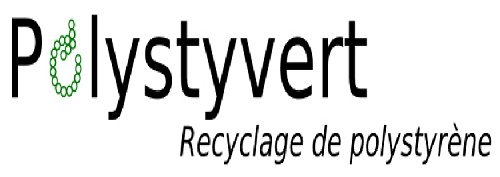
-Turkish companies have been hit by “Erdogan”‘s trials in the economy by Alforsanius
Turkish companies have been hit by “Erdogan’s” experiments in the economy
In theory, Turkish businessman Fahid Yilmas is expected to benefit from the depreciation of the lira, as orders from abroad continue to accumulate in Turkey’s 30 billion textile and apparel industry after the fall in dollar production costs.
But as the price of textiles, textiles and other inputs has risen in US dollars, he said his wholesale clothing business is only 50-50 likely to continue in the next 12 months. Local manufacturers like Yilmas in Mertor – Istanbul’s readymade garments wholesale district – are preparing for a tumultuous spring.
Turkish President Recep Tayyip Erdogan has overseen a 50% fall in the value of the lira since the beginning of the year after the central bank repeatedly ordered it to cut interest rates, despite rising inflation.
The central bank cut interest rates on Thursday for the fourth month in a row, then fell another 7% to 16.8 Turkish lira on Friday as the currency fell one-fifth in December after losing 29% of its value in November. .
The Turkish president has argued that the cheap currency will help a country of 83 million people to enjoy prosperous exports, investment and job creation, according to Britain’s Financial Times.
Critics of the president say he is subjecting the country to a “massive economic test”.
In recent months, Erdogan has begun another cycle of relaxation, citing China’s economic transformation following the 1978 reforms.
But Ali Akimek, an economist from both China and Turkey at Japan’s Yamaguchi University, said Beijing had already devalued its currency in the 1980s and 1990s, but had implemented a clear “industrial vision.” The world’s second largest economy for decades. .
See also “OPEC Plus” pumped 400,000 barrels a day in January
“There is no clearly defined industrial policy in Turkey,” he warned, adding, “We do not know what industry they are trying to promote.”
“It is economically insane to think that a country can create an export-oriented economy with a declining currency,” said a London-based banker with experience in both economies.
Despite growing dissatisfaction from voters and the business community, Erdogan’s determination to push for interest rate cuts has sparked speculation that some constituencies in Turkey should take advantage of the lira’s decline.
But Atila Yezilada, a researcher at the consulting firm Global Source Partners, says “this is not a policy that benefits any particular entity, including his family or associates.”
Some companies seem to be making a profit from the fall of the currency. “Most of the companies listed on the Istanbul Stock Exchange benefit from the weaker lira,” said Selim Konter, a stock analyst at Istanbul-based Ak Yatrim.
Recycling technology Turkish economy Crude oil Morocco textile CO2 emissions Circular economy Recycling compounder

-Oil prices may hit $100 with record demand in 2023
Crude oil prices could hit $100 per barrel due to record high demand in 2023 despite the latest omicron coronavirus variant, according to an analyst from Goldman Sachs.
“We have already had record high demand before this newest variant, and now you are adding higher jet demand, and the global economy is still growing,” said Damien Courvalin, head of energy research at the US-based multinational investment bank and financial services firm, on Thursday.
“We have to wait for this wave to pass, but that suggests that international travel should recover further next year,” he told at an energy outlook meeting.
Courvalin said he expects the price of international benchmark Brent crude to average $85 per barrel next year, but there is an upside risk it could be $10 higher than that level.
“You see how we will average a new record high in demand in 2022, and then again in 2023,” he said.
Recycling technology Turkish economy Crude oil Morocco textile CO2 emissions Circular economy Recycling compounder
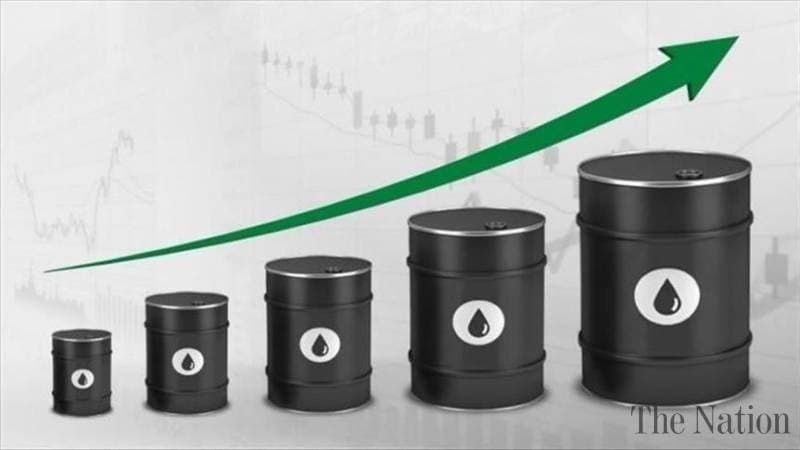
-New Initiative to Promote Moroccan Textile Products in Europe
The program, launched by a Dutch agency, is forecasted to generate 4 million in capital gain and create 2 800 jobs within Morocco’s textile industry.
The Moroccan Association for Textile Manufacturing (AMITH) signed on December 16 a deal with the Netherlands’ Agency for Promoting Imports from Developing Countries (CBI).
Signed in Casablanca, the agreement aims to support 35 textile businesses and help them expand their operations in central and northern Europe.
The ambitious program, dubbed “CBI-Morocco Apparel & Textile Program,” is projected to help Moroccan businesses operating in the textile industry gradually increase their presence in European markets through increased imports over a period of five years, said Juliette Van Iperen, the head of the program.
The five-year program aims to create networking channels between Moroccan textile suppliers and European textile retailers.
The 35 textile businesses chosen for the program will go through a rigorous candidacy process based on expertise and their Corporate Social Responsibility (CSR)
Clothing and textile are a primary importing sector in Morocco. With a value bordering MAD 38 billion ($ 3.9 billion), textile and clothing exports made up 15% of Morocco’s industrial GDP in 2018.
The textile sector is of strategic importance to Morocco’s efforts to emerge as an industrial and exporting hub.
While Spain and France remain Morocco’s major trading partners, the North African country is now redirecting its marketing efforts worldwide, attracting investments and cultivating partnerships with major actors in the automobile and aeronautical sector established in Morocco.
Morocco’s latest global marketing campaign, “Morocco Now,” showcases the country’s intensive efforts to become a continental leader and a gateway to African markets.
Recycling technology Turkish economy Crude oil Morocco textile CO2 emissions Circular economy Recycling compounder
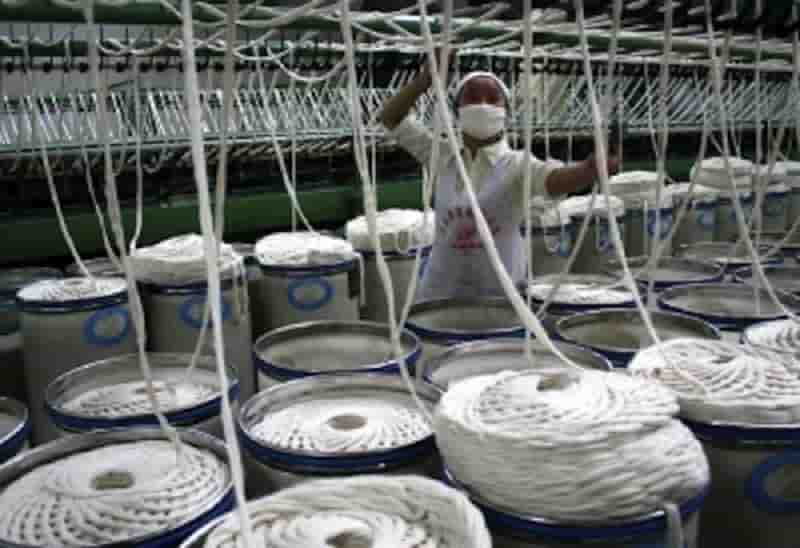
-Honeywell to collaborate with University of Texas on new CCS technology
Honeywell has announced an agreement with The University of Texas at Austin that will enable the lower-cost capture of CO2 emissions from power plants and heavy industry, according to Hydrocarbonprocessing.
Honeywell will leverage UT Austin’s proprietary advanced solvent technology to create a new offering targeted at power, steel, cement and other industrial plants to lower emissions generated from combustion flue gases in new or existing units. The solution provides these sectors with an additional tool to help meet regulatory requirements and sustainability goals.
Honeywell has committed to achieve carbon neutrality in its operations and facilities by 2035. This new CCS technology builds on the company’s track record of sharply reducing the GHG intensity of its operations and facilities as well as its decades-long history of innovation to help its customers meet their environmental and social goals. About half of Honeywell’s new product introduction research and development investment is directed toward products that improve environmental and social outcomes for customers.
The licensing arrangement with UT Austin expands Honeywell’s leading carbon capture technology portfolio. Today, 15 MMtpy of CO2 is being captured and used in storage/utilization applications through Honeywell’s CO2 Solutions process expertise. Honeywell currently has the capacity to capture 40 MMtpy through its installed projects worldwide.
UT Austin’s patented solution utilizes an advanced solvent, which enables CO2 to be captured at a lower cost through greater efficiency using smaller equipment, creating viable project economics today under current CO2 policy frameworks in North America and Europe. For a typical power plant (650 MW capacity), applying advanced solvent carbon-capture technology would enable the capture of about 3.4 MM tons of CO2 annually, equivalent to removing nearly 735,000 cars from the road each year.
In 2020, CCUS projects worldwide were capturing and storing/using 40 MM metric tpy of CO2, according to the International Energy Agency (IEA). In order to align with the IEA Sustainable Development Scenario, which demonstrates a pathway to limit global temperature rise by less than 1.65? C, CCUS project capacity must increase more than 20 times to enable capture of 840 MM metric tpy of CO2 by 2030.
Recycling technology Turkish economy Crude oil Morocco textile CO2 emissions Circular economy Recycling compounder
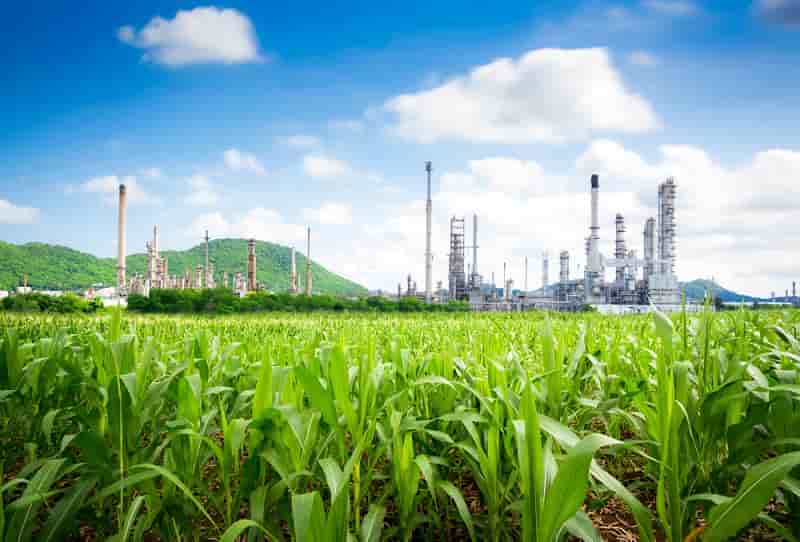
Dow, an American company, teamed up with Chinese milk brand Shiny Meadow to collect and repurpose more than 6,000 used plastic milk bottles
China kicked off a five-year plan in January to phase out single-use and non-biodegradable plastic bags and packaging
China, the biggest producer of plastic waste on the planet, kicked off a five-year plan in January to phase out single-use and non-biodegradable plastic bags and other plastic packaging.
From repurposing used milk bottles to recycling water barrels and making biodegradable bags, multinational chemical firms are trying to make plastic packaging more sustainable in China amid growing pressure from regulators and customers.
Dow, an American company based in Michigan, has a target to work with partners to collect and recycle 1 million tonnes of plastic globally by 2030. In April it teamed up with Chinese milk brand Shiny Meadow to collect and repurpose more than 6,000 used plastic milk bottles.
After being broken down into small pellets and mixed with other plastic waste, the material was chemically modified and added to asphalt for paving a road in a university in Shanghai.
Since 2017, Dow has entered into similar partnerships in countries such as Indonesia, Thailand, Vietnam and the US. It said the process can prolong the lifespan of roads, as well as cut energy usage and greenhouse gas emissions.
Recycling technology Turkish economy Crude oil Morocco textile CO2 emissions Circular economy Recycling compounder
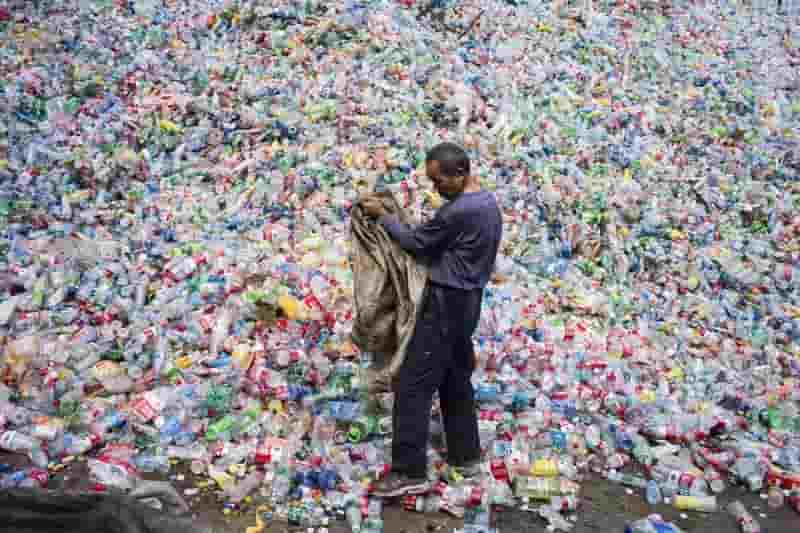
-Recycling compounder Canuck Compounders bought by Montreal NanoXplore
Cambridge, Ont.-based recycling compounder Canuck Compounders Inc. has been acquired by graphene supplier NanoXplore Inc., of Montreal, for USD9.3 million, said Canplastics.
Canuck Compounders provides sustainable and engineered recycled plastic compounds for use in transportation, building and construction, agriculture and packaging markets. The company’s Cambridge manufacturing facility has a production capacity of approximately 40 million pounds annually.
In a Dec. 16 news release, NanoXplore CEO Soroush Nazarpour described the acquisition as being “strategically aligned with our growth initiatives and significantly increases our graphene compounding capability, especially in recycled plastics.”
Canuck Compounders has a “strong relationship with recycled plastic suppliers” that ensures a smooth and reliable supply of post-consumer and post-industrial recycled plastics, Nazarpour continued. “This transaction will enhance our technical expertise in recycled plastic compounds and bolster our top-line by approximately USD20 million annually, without considering revenues derived from graphene inclusion,” he said.
Officials with NanoXplore added that the firm is seeking to expand its downstream, value-added product offering through enhanced masterbatch and compounds, pastes, battery materials, formulated thermoset resins and cement admixtures. Canuck Compounders founder and CEO William Dickinson will continue in a role as general manager, the news release said, along with about 40 employees.
As it was written earlier, Marieville, Que.-based PVC compounder Reinier Plastics Inc. has been acquired by Aurora Plastics LLC, a supplier of PVC compounds headquartered in Streetsboro, Ohio. The terms of the deal have not been disclosed.
Recycling technology Turkish economy Crude oil Morocco textile CO2 emissions Circular economy Recycling compounder

Recycling technology Turkish economy Crude oil Morocco textile CO2 emissions Circular economy Recycling compounder
